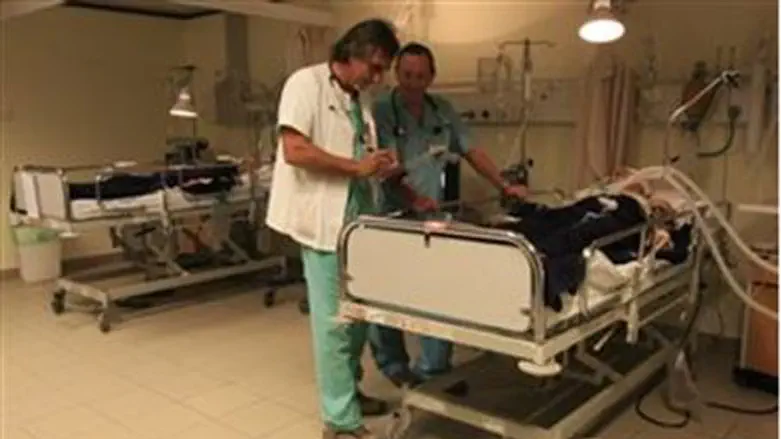
In what may be a precedent-setting decision, a Tel Aviv court has ruled that the Abarbanel psychiatric facility may not use electro-convulsive therapy (ECT) treatment without the patient's written consent.
The ruling by the court said that laws relating to the rights of individuals outweighed the laws regarding the care of mentally ill individuals.
Appointment of a legal guardian to make medical decisions for a patient under such circumstances is a complex problem.
An article published in 2010 in the Israel Journal of Psychiatry and Related Sciences, written in English by Dr. Yuval Melamed, Deputy Director of Lev Hasharon Mental Health Center entitled “Guardianship Appointment: Current Status in Israel” discussed such issues in considerable detail.
Melamed noted that in 1999 the Health Ministry had distributed a directive to the relevant medical and social service authorities detailing the process. According to the directive, the department of social services in each hospital is the responsible and coordinating body, and the department head is responsible for preparation of the medical material.
It was recommended that a family relative or other person be appointed to care for the patient when the petitioner is a close a relative or an interested party.
An expert medical opinion is required by the court, the document notes, under the following conditions:
1.when the patient's insight and capacity to give informed consent is questionable,
2.one of the following applies:
a. mental illness or mental impairment
b. dementia
c. mental deficiency
d. other mental or physical conditions
e. The patient cannot provide consent for essential medical treatment.
Medical specialists included among those designated by law as appropriate to provide the required expert opinion are psychiatrists, geriatricians, psychogeriatricians and neurologists.
The judge in the current case ruled that because no immediate public concern or danger would result from avoiding the use of ECT, and due to the fact the patient had no family member to represent her, the patient's decision must be considered as valid.
Nevertheless, the patient's victory was temporary: the court added in its ruling that it would continue to contemplate the issue. No decision has yet been made on whether a permanent ban will be granted.
ECT is generally used as a last-resort therapy when psychotherapy and and all appropriate forms of psychotropic medication have been tried, and failed. It has been found to be successful in treating resistant forms of major depressive disorder, obsessive-compulsive disorder and severe forms of bipolar disorder.
